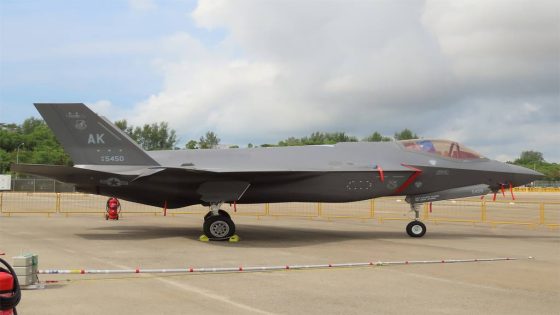MANILA, Philippines — Singapore’s Defence Ministry plans to order eight F-35A jets, which would bring the country’s Joint Strike Fighter fleet to 20.
The F-35A purchase would be on top of earlier orders for 12 F-35Bs from the American defense company Lockheed Martin.
Addressing Parliament during Wednesday’s budget deliberations, Defence Minister Ng Eng Hen said his ministry wants to take advantage of the competitive price of the F-35As, which are now “comparable” to Boeing’s F-15 jets.
“We have to de-prioritize other projects for this opportunity, but we’ve done our calculations and we think this is the best time to put orders for F-35As,” he said, adding that accelerating the F-35 acquisition plan will put the Republic of Singapore Air Force in the “premier league.”
F-35As are built for conventional takeoff and landing, have dependable endurance, can carry higher capacity payloads, and provide more operational flexibility, Ng explained.
Both the “A” and “B” variants are suitable for Singapore’s limited land spaces, the ministry has noted.
Singapore ordered four F-35Bs in a 2020 deal worth an estimated $2.75 billion, then added eight more F-35B units in 2023. The aircraft are on track to arrive during the 2026-2028 time frame.
If Parliament approves the current F-35A acquisition, Ng said the additional fighter jets would arrive by 2030, the same year Singapore’s military plans to retire its F-16 fleet. By the end of the decade, the Air Force would operate a combined fleet of F-15SG, F-35A and F-35B fighter jets.
The ministry has also proposed a SG$20.2 billion (U.S. $15 billion) defense budget — an increase from last year’s SG$17.98 billion (U.S. $13.36 billion) allocation.
For several years Singapore has steadily allocated around 3% of its gross domestic product for defense spending, according to the Stockholm International Peace Research Institute think tank. This consistency has allowed the country to upgrade its aircraft fleet as well as modernize existing platforms.
The military had undertaken a massive modernization push set to materialize in 2040.
“Today we are reaping dividends of the sum we put up steadily over the past 20 years [on defense spending],” Ng said.
Singaporean leaders during the budget deliberations expressed concerns over Russia’s ongoing invasion of Ukraine, the Israel-Hamas war, and economic disagreements between the U.S. and China.
“We are all concerned that the U.S. and China can clash over Taiwan, and if that happens it will be a very bleak Asia for a very long time,” Ng acknowledged. “I want to make clear that if ever something similar happens to us here in Singapore, [the Ministry of Defence and the Singaporea Armed Forces] do not plan to depend on another country to come to our rescue.”
Leilani Chavez is an Asia correspondent for Defense News. Her reporting expertise is in East Asian politics, development projects, environmental issues and security.
Source Agencies




